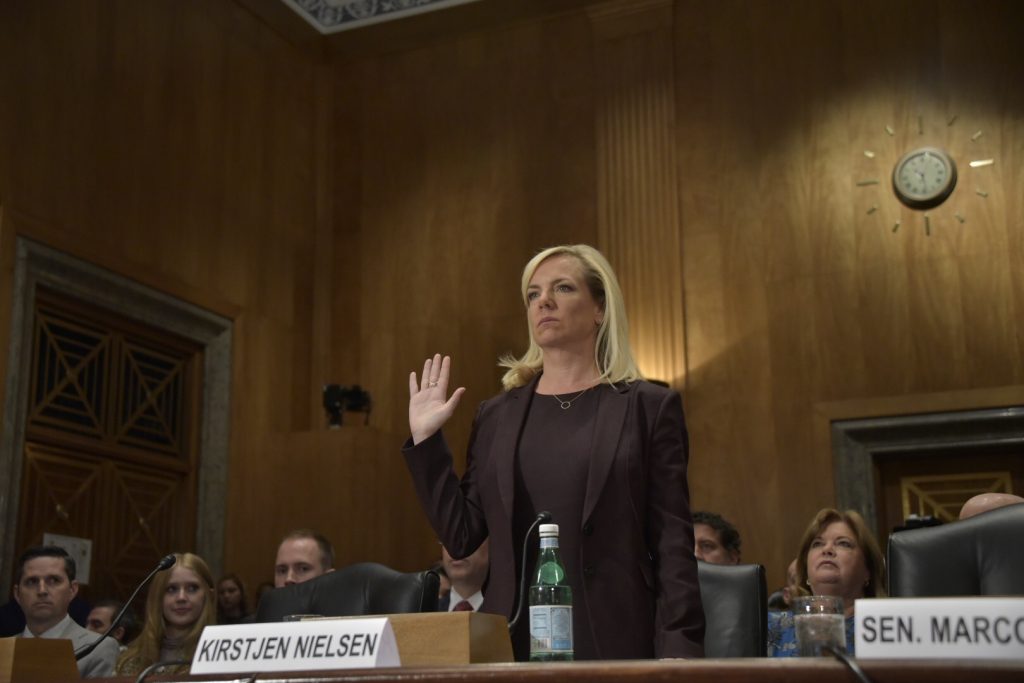
At the end of March, now former Secretary of Homeland Security Kirstjen Nielsen issued a letter to Congress asking for an increase in funding for the Department of Homeland Security (DHS). Also included in her letter was a request for broadened legal authority. Specifically, Nielsen asked for the power to detain migrant families beyond the 20 days currently allowed by the Flores settlement. The American Bar Association quickly responded, stating: “Such a proposal is contrary to the American rule of law.”
Current Law
The Flores settlement (an agreement reached in 1997 between immigration advocates and the United States government spurred by a Hollywood actor’s housekeeper being detained) only allows children to be detained for 20 days. In its current request, the Trump Administration is asking that DHS and Customs and Border Protection (CBP) be allowed to detain families together until after the Executive Officer for Immigration Review (EOIR) conducts their immigration hearings.
Currently, when a family shows up at the border, children and adults are detained separately. Because children can only be detained for a maximum of 20 days, the entire family must be released at that time. Secretary Nielsen, in support of her request, claimed that most immigrants fail to appear at their immigration hearings and that detaining immigrant families until their hearing’s conclusion was the only way to ensure they appeared. According to the EOIR, however, only 25% of immigration hearings were decided in absentia in 2016.
Bypass of Due Process
Nielsen’s letter also requests the ability to deport non-Mexican unaccompanied minors immediately. Nielsen backed up her request to bypass due process by citing the increased number of immigrants arriving at the United States’ southern border from Central American countries like Guatemala and Honduras and the strain that increase has put on DHS and CBP. The American Bar Association, however, stresses that a child’s right to consult with an attorney and be heard by a judge should be a top priority.
Robert Carlson, the President of the American Bar Association, also pointed out in his response to Nielsen’s request that the ABA has long been in support of increased funding for the country’s immigration enforcement system. The ABA has consistently requested an increase in funding to pay for more immigration judges and support staff.
This is not the first time the Trump Administration has attempted to change the laws concerning the detention of immigrants at the Mexican border. The Administration made a similar attempt in September of 2016 when it tried to lift court-imposed limits on the detention of children altogether. Lifting the time limits altogether was unsuccessful, so it seems the Administration is now trying to work around those limits by asking Congress for the right to detain families together until the conclusion of their immigration hearing.
Trump Threatens to Close the Border Altogether
What the Trump Administration refers to as a “crisis at the border” has now also led the President to threaten to close the border entirely. In fact, Chief of Staff Mick Mulvaney stated: “It would take ‘something dramatic’ in the coming days to persuade President Donald Trump not to close the U.S.-Mexico border.” Kellyanne Conway also backed up the President’s plan, claiming it “isn’t a bluff.”
Despite this, the President has since backed off his threat to close the border and subsequently fired Secretary Nielsen and other top officials at DHS.
If the President were to shut down the border, the effects would go far beyond immigration. According to the U.S. Census Bureau, $611 billion in goods crossed the U.S.-Mexican border just last year. Additionally, thousands of people cross the border on a daily basis to work in either the United States or Mexico. It is hard to imagine a closing of the border that would not have devastating effects on trade and employment on both sides of the border.



Leave a Comment